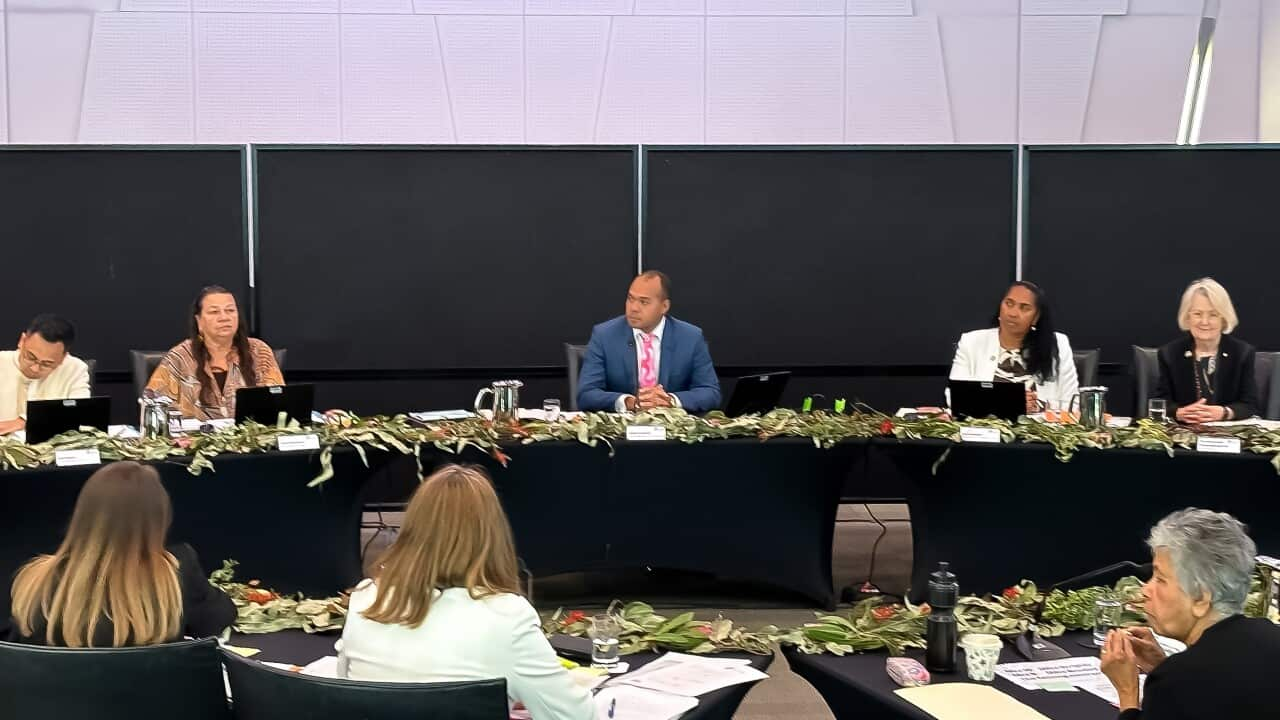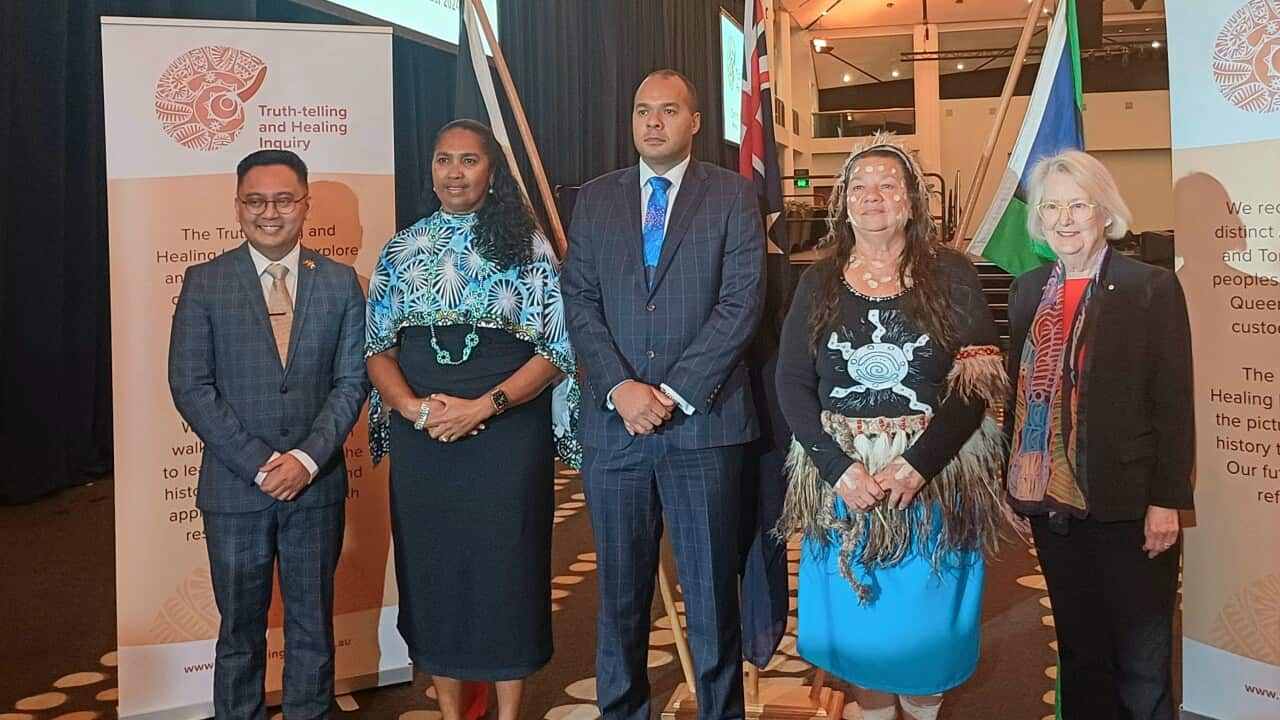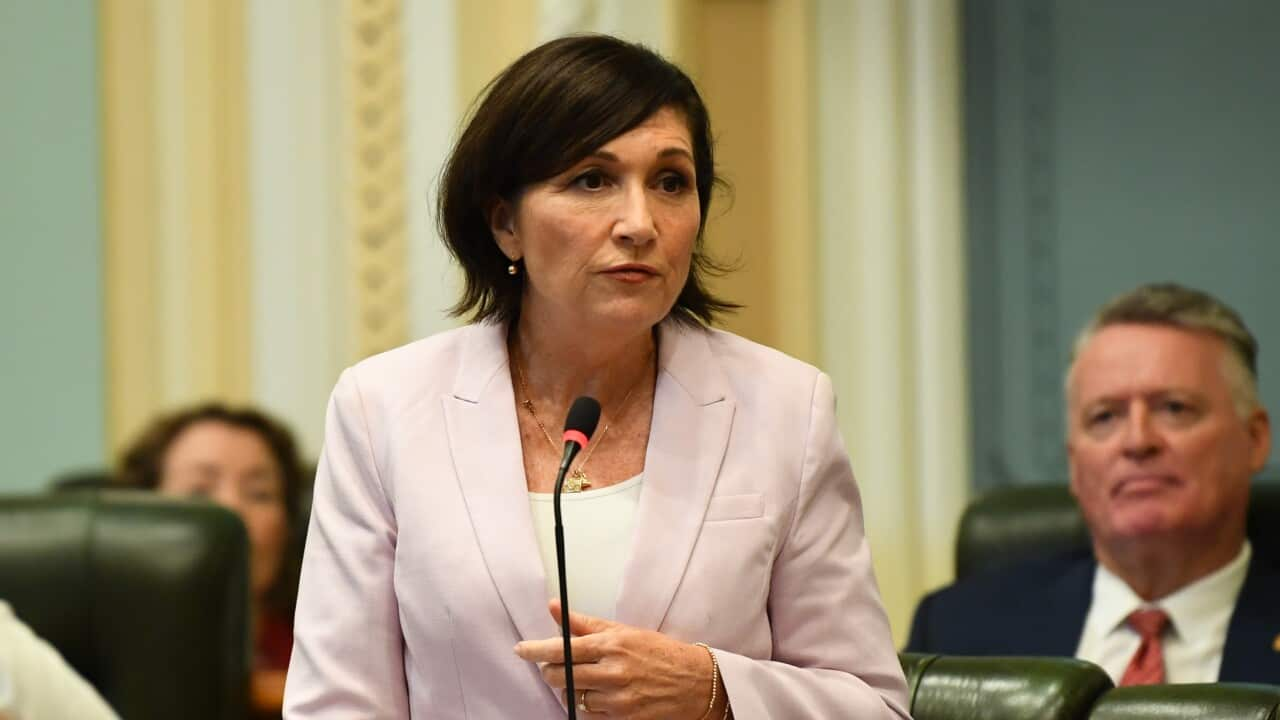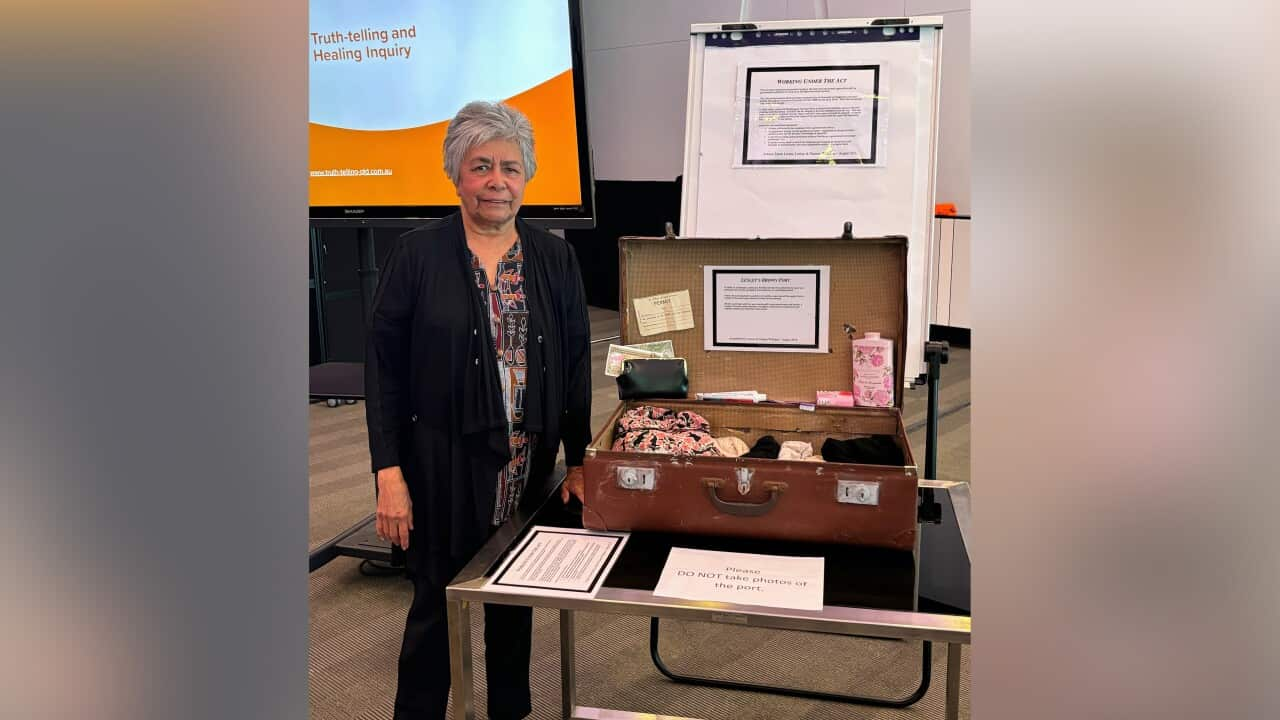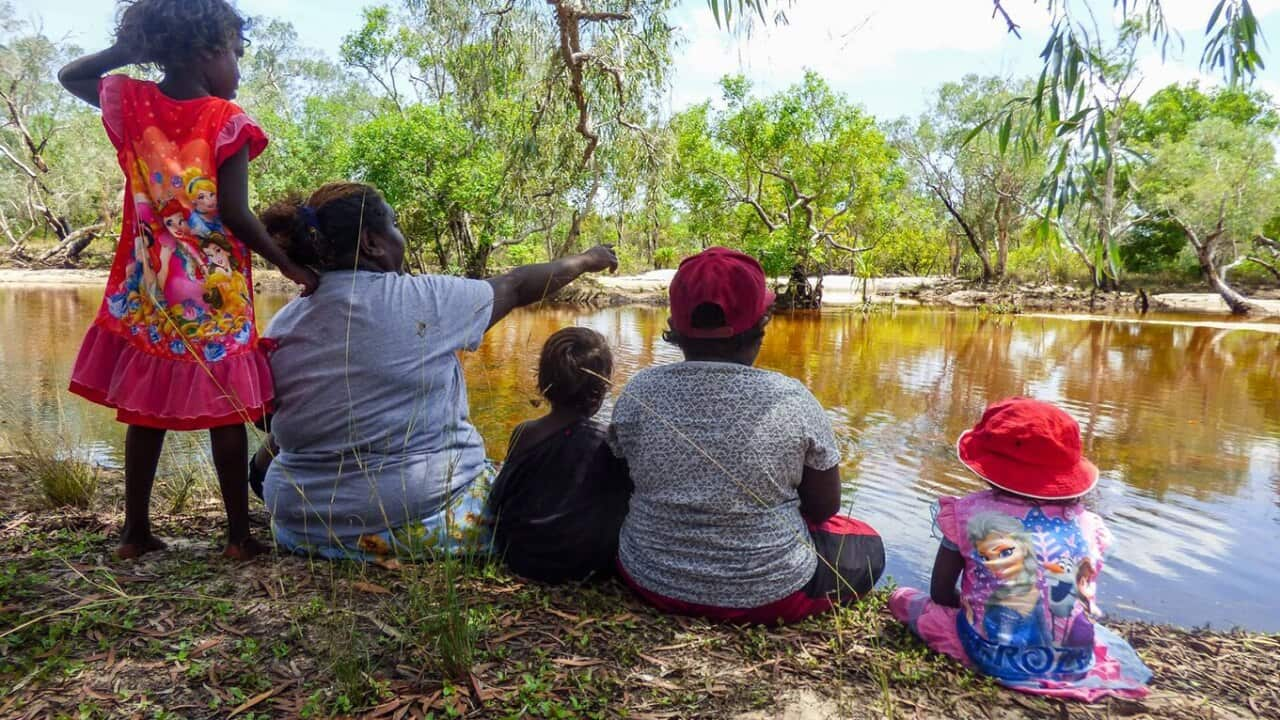Queensland's truth-telling and healing inquiry will not be allowed to continue, the premier says, claiming he did not want the decision to be 'divisive'.
On Thursday, David Crisafulli told the media upcoming truth-telling hearings in Cherbourg and Minjerribah/Terrangerri (Stradbroke Island) would not be allowed to go ahead.
"I don't think there's anyone under any illusions about the fact that we're not continuing that process," the Liberal National Party leader said.
But First Nations people and organisations have vowed to keep speaking their truths - with or without government support - and are asking the Premier to reconsider.
Dale Ruska, director at the the Minjerribah Moorgumpin Elders-in-Council Aboriginal Corporation, one of the host organisations for truth telling community information sessions, told NITV that they would hold tonight's and tomorrow's events as planned.
The Truth-telling and Healing Inquiry is unable to attend these sessions and has paused its current workplan until further information is available from the new Queensland Government.
"They shouldn't fear it, because truth is so absolutely necessary, and no one, not government or anything, can stop us from telling our truths," Mr Ruska told NITV.
"But I think the biggest fear for the Queensland government that they should be considering is what that raises about the moral motives behind the reasoning of their decision.
"And that's something that we've already seen historically occur over generations that's caused a lot of costs of trauma for ourselves, but it's also allowed for the facilitation of human rights abuses and crimes of injustice to be committed against us as the First People, historically."
The inquiry is set out in Queensland's — which passed parliament with bipartisan support in 2023.
Mr Crisafulli said he plans to repeal the Path to Treaty Act.
Inquiry chair Joshua Creamer said he has not had any communication from the new government but will pause the inquiry's work in response to the premier's comments.
"If the inquiry is formally stopped it will be a lost opportunity for the state," he said.
"We are not going to get another opportunity at this in the next decade, two decades, in my lifetime."
Mr Crisafulli said he didn't want to make the decision to scrap the inquiry a "divisive issue".
"We've made a decision. It's the right decision and we stand by it but I don't want to cause angst to people," he said.
"I want people to know that we are going to do good things for Aboriginal and Torres Strait Islander people."
Cherbourg, a former reserve where Aboriginal people from all over Queensland were forcibly removed from their homelands and resettled, has been preparing for the inquiry for months.
Invitation to visit Cherbourg
Mayor Bruce Simpson invited Mr Crisafulli to visit Cherbourg and suggested the government could use the Aboriginal shire as a truth-telling and healing pilot and then revisit the decision to scrap the inquiry in a year.
"Come and listen to the Elders and to their stories and just absorb some of the truth that they want to share to Queensland, to Australia and to the world," he said.
In preparation for the inquiry, the Cherbourg community has been working through a trauma-informed process, to make sure Elders and other participants would be in a culturally safe environment at all times.
Mr Simpson says his community is devastated by the premier's announcement, particularly as some Elders had already been able tell their stories at the launch of the inquiry.
"And you can even see now the impact of continued excitement and hope for their stories to be validated on on a larger scale of humanity," he said.
"Our hope is that we continue.
"We've got a strong community, we've got a strong Council and Elders group, and we've already looked at other options of how to continue to tell our stories and to record the history."
Mr Ruska said First Nations people need the opportunity to be able to tell their truths.
"And we need to remember the resilience and the resistance and the endurance that was displayed by our ancestors over generations," he said.
"And we need to continue with those principles and values and stand in solidarity and unity in relation to the need for truth, telling and healing.
Healing starts from being allowed to expose truth.
First Nations communities in Queensland are suffering due to intergenerational trauma, Mr Ruska said.
"And a lot of that trauma has been caused as a result of past historical circumstances," he said.
"And healing is for us so necessary to begin, as a lot of communities already have ...
"But I think it's also just as important for Australia as a nation, because of how the history has evolved, and how that history is a more or less one-sided history that ignores a lot of our truth as First Nations people, and what that history meant for us."
Queensland Child and Family Commissioner Natalie Lewis put out a statement on Friday afternoon, saying she was "deeply concerned" about the announcement and that the primacy placed on ending the Inquiry "reflects a deeply troubling disregard for the rights of Aboriginal and Torres Strait Islander Peoples".
"There is nothing divisive in the language or intent of the Truth-telling and Healing Inquiry; in fact, the terms of reference clearly articulate a process to bring all Queenslanders together through truth to facilitate healing," she said.
A decision to repeal the Act in its entirety would dismantle a framework designed to facilitate dialogue and truth-telling across Queensland, Commissioner Lewis said.
"We can't build respectful relationships with First Nations communities without honouring their histories," she said.
"We can't build a shared understanding of our histories and a collective vision for our future in the absence of truth. And we can't heal the hurt of a divided state without actively supporting its people to heal.
"By reversing the Path to Treaty Act and ending the Truth-telling and Healing Inquiry, the Queensland Government has chosen a path that will auspice division, not end it."
Mr Creamer said he was grateful for the support the inquiry had been shown, particularly by Elders who had already shared their stories.
"People sharing their stories to capture an accurate history of our state is not divisive and I'm hopeful the inquiry can remain in some form to continue this critical work before it's too late," he said.
The Premier has also promised to make the LNP's harsh 'adult time for adult crime' policy into law by Christmas, despite opposition from Indigenous, legal, children's and human rights organisations, who all say it will not make communities safer and will target already vulnerable First Nations children.
